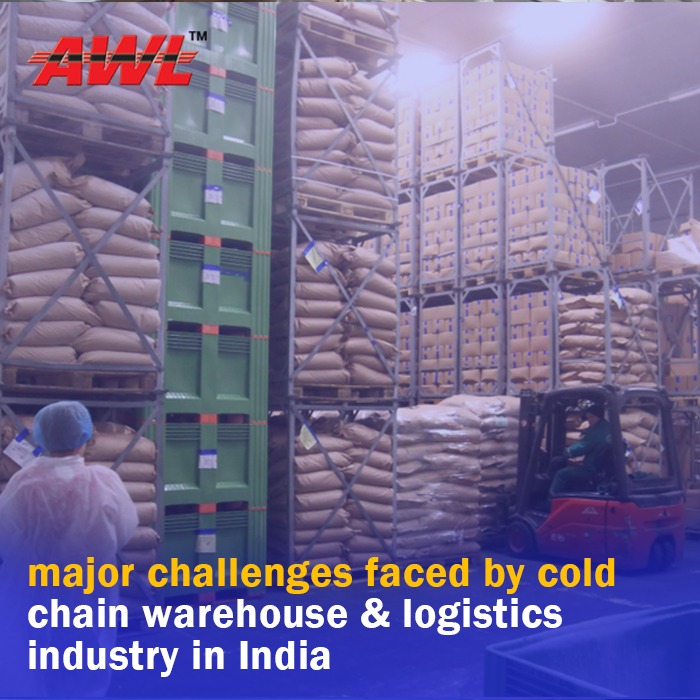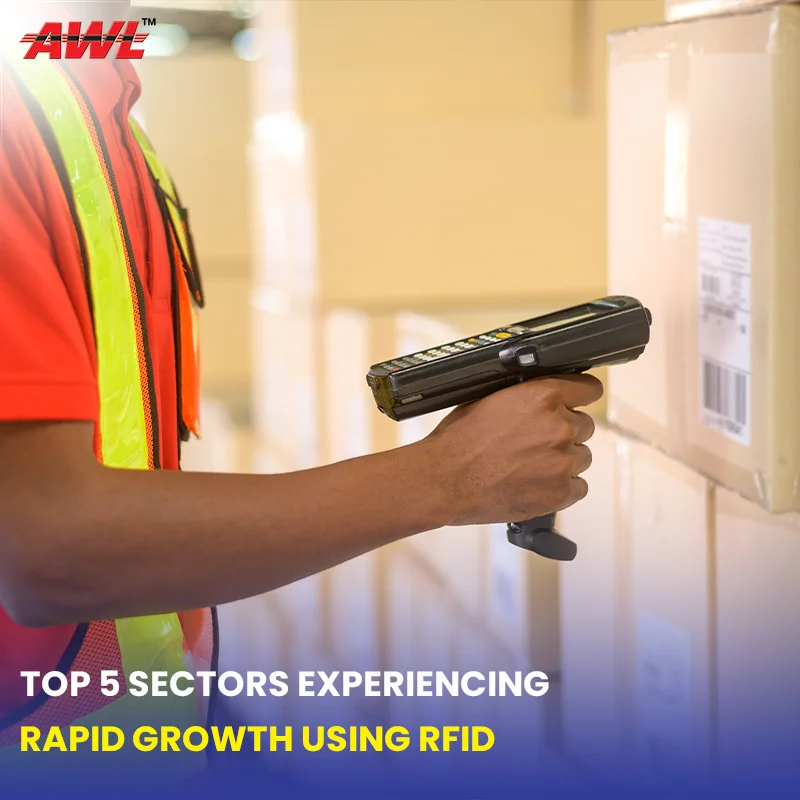

Cold Chain Warehouse and logistics in India is one of the current research and development priority areas in Supply Chain Management, and there is a lot of potential for it to grow as well as an urgent demand for it. India is the world's largest producer of milk, the world's second largest producer of fruits and vegetables, and it produces a significant amount of fish, meat, and poultry goods. However, due to the inexperienced cold chain supply, there is significant food and agricultural product loss. According to the Food and Agriculture Organization, around 1.3 billion tonnes of food are lost each year, accounting for one-third of global food production. These losses are estimated to be between USD 8 and $15 billion each year. To avoid these issues, AWL India is determined to make use of efficient Smart Warehouse Solutions to overcome the complex challenges that are involved in the cold chain sector.
The industry as a whole is suffering a huge monetary loss due to these challenges that are present in the industry today. Apart from perishable food, the pharmaceutical industry is another critical sector that relies on a reliable cold supply chain network. A strong and well-managed cold supply chain network is required for the storage and transportation of vaccines, life-saving medications, and other pharmaceutical raw materials. AWL India being one of the leading Warehouse Logistics Companies and among the best Warehouse Service Providers In India has put together a few of the various challenges that are being faced by the cold chain industry today.
There are numerous challenges that are being faced by the cold chain warehouses today. Unlike regular warehousing, the perishable nature of the goods makes it difficult to store these goods and maintain the quality for an extended period of time. Moreover, the list of the challenges faced by cold chain warehouses are as follows:
Fuel prices in India account for approximately 45% of cold storage operating charges, resulting in considerably higher costs. Operating costs for Indian cold storage enterprises are around Rs 100 per cubic foot each month. It costs half as much in the West, where fuel costs just 10% of the total.
While the West has integrated technology such as Artificial Intelligence, Machine Learning, and the Internet of Things into its operations, India lags far behind. Lack of technology results in underutilised and broken cold chains, resulting in losses for both operators and food manufacturers.
Transport units such as freezer trucks, freezer containers, reefer vans/trucks, carriers, merchandising carts, and so on must be built. This might also result in greater transportation costs because the necessary equipment and fleet must be purchased.
Power outages or variations in electricity might cause the powered cooling systems to fail. Coolant failures and inadequate cooling circulation can also have an influence on cold chain management, resulting in increased costs owing to maintenance requirements. It can also result in a lot of waste since perishable commodities are impacted by heat exposure for an extended length of time, resulting in a loss of product quality and profitability.
Human errors result in large loss of resources and can only be avoided by using the latest Cold Chain Warehouse technologies. Moreover, the cold chain logistics management necessitates highly qualified experts who are familiar with all processes and protocols, as well as hands-on expertise running various cold storage and transit equipment. Also, AWL India provides the latest technological advancements that can reduce the human errors to the minimum and increase the efficiency of the warehousing operations today.
The private sector owns and operates 92% of India's cold chain facilities. The business is very fragmented and almost non-existent in several regions; in fact, only four states account for 60% of the country's cold storages: Uttar Pradesh, Gujarat, West Bengal, and Punjab.
The Indian cold chain business is still in its infancy, making it one of the most promising industries in the cold chain warehousing logistics industry. The Indian cold chain logistics market was valued at $16 million in 2022, and it is predicted to grow to $36 million by 2027. India is on track to become the world's fifth biggest economy by 2027, and as a well-established essential player in the global market, investment in India's supply chain infrastructure is expected to rise year on year. Fortunately, the Indian government is a driving force in the development of the cold chain business, and it encourages private participation through different subsidy programmes and incentives. The Ministry of Food Processing Industries (MoFPI) had created a programme particularly for cold chain, "scheme on cold chain, value addition & preservation infrastructure".

